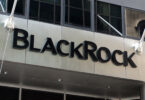For years institutions involved in the digital assets space have said that legal issues take longer to resolve than implementing the technology. While some jurisdictions have made life easier for DLT securities and financial instruments, each country differs. Now the Hague Conference on Private International Law (HCCH) has created a project to explore digital tokens.
The intergovernmental body’s mission is to resolve uncertainty for cross border businesses regarding which laws are applicable and how legal decisions are recognized.
The initial digital token work is to collate the taxonomy of digital instruments across different jurisdictions and to report back next year. A paper on the topic specifically mentioned the tokenization of real world assets (RWA) and fund tokenization.
The types of tokens involved in the new digital token project include:
- real estate tokens
- utility tokens
- payment tokens
- non-fungible tokens (NFTs)
- stablecoins
- tokens representing certain claims
- other use cases of tokens as may be identified by subject-matter experts.
Part of the project aims to specify which use cases should be explored. If contractual rights are agreed upon between parties, these are likely outside the scope.
It explicitly excludes securities, CBDC and carbon credits. There’s already an HCCH CBDC project, and exploring jurisdictional issues relating to digital securities is at a very early stage. Both these projects will coordinate with the digital token initiative. Carbon credits are the subject of another proposed project.
The securities work forms part of a review of the 2006 HCCH Convention for securities that determines which law applies to perfection over securities held by an intermediary. This relates to who has the title to collateral when something goes wrong. Only three countries adopted the convention – the United States, Switzerland and Mauritius. However, several other HCCH conventions are widely adopted.
Potential digital token topics
Last year the International Institute for the Unification of Private Law (UNIDROIT) approved a set of principles on digital assets and private law (DAPL). It subsequently held multiple meetings with HCCH on a joint project, and the notes of their meetings highlight possible areas of investigation.
Firstly, they emphasized tokenization, where an existing asset is recorded on DLT rather than digitally native tokens. They refer to this as ‘linked assets’. Another area discussed by the joint project is whether custody rules as defined in DAPL could also apply to non custodial situations.
There was some discussion about the location of control, particularly in the context of public permissionless blockchain. Permissioned blockchains are more likely to include contractual agreements that specify those kinds of issues and UNDROIT’s DAPL has explicit principles on that topic.






